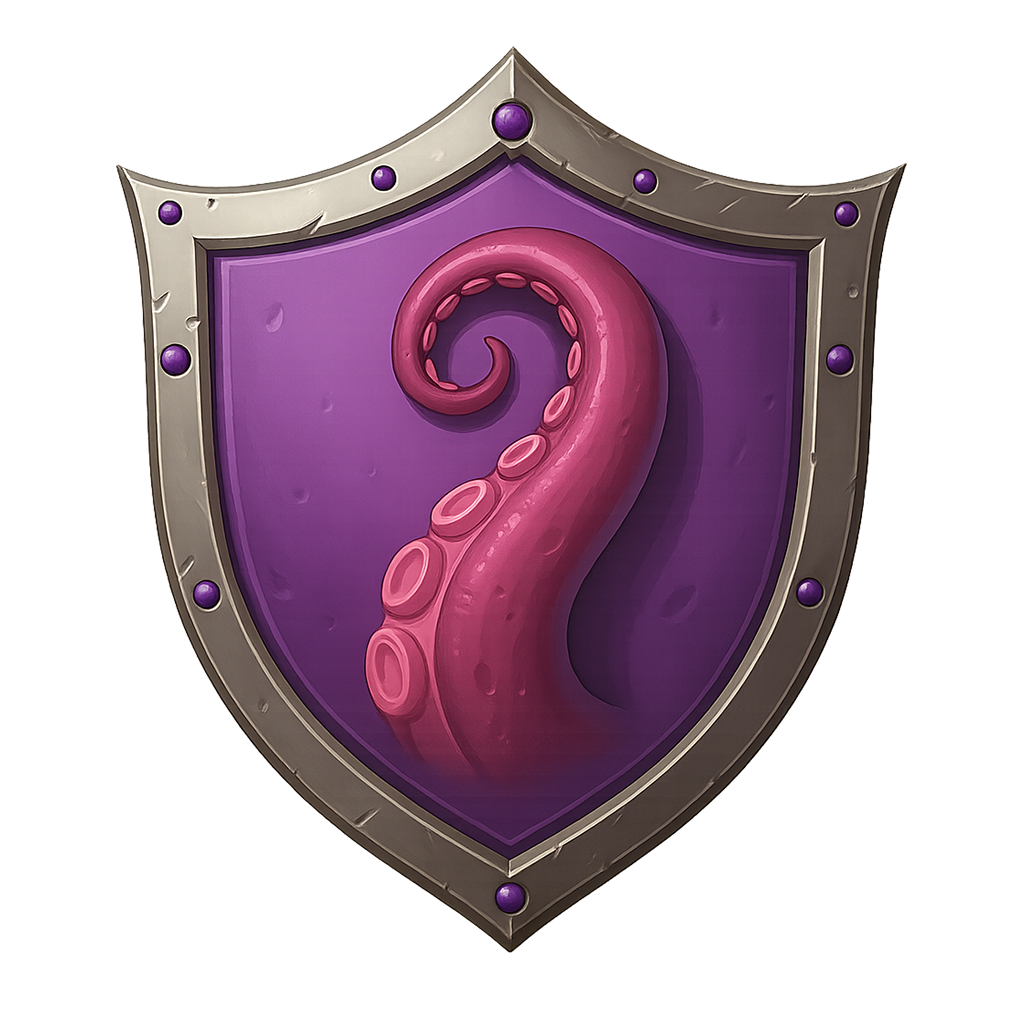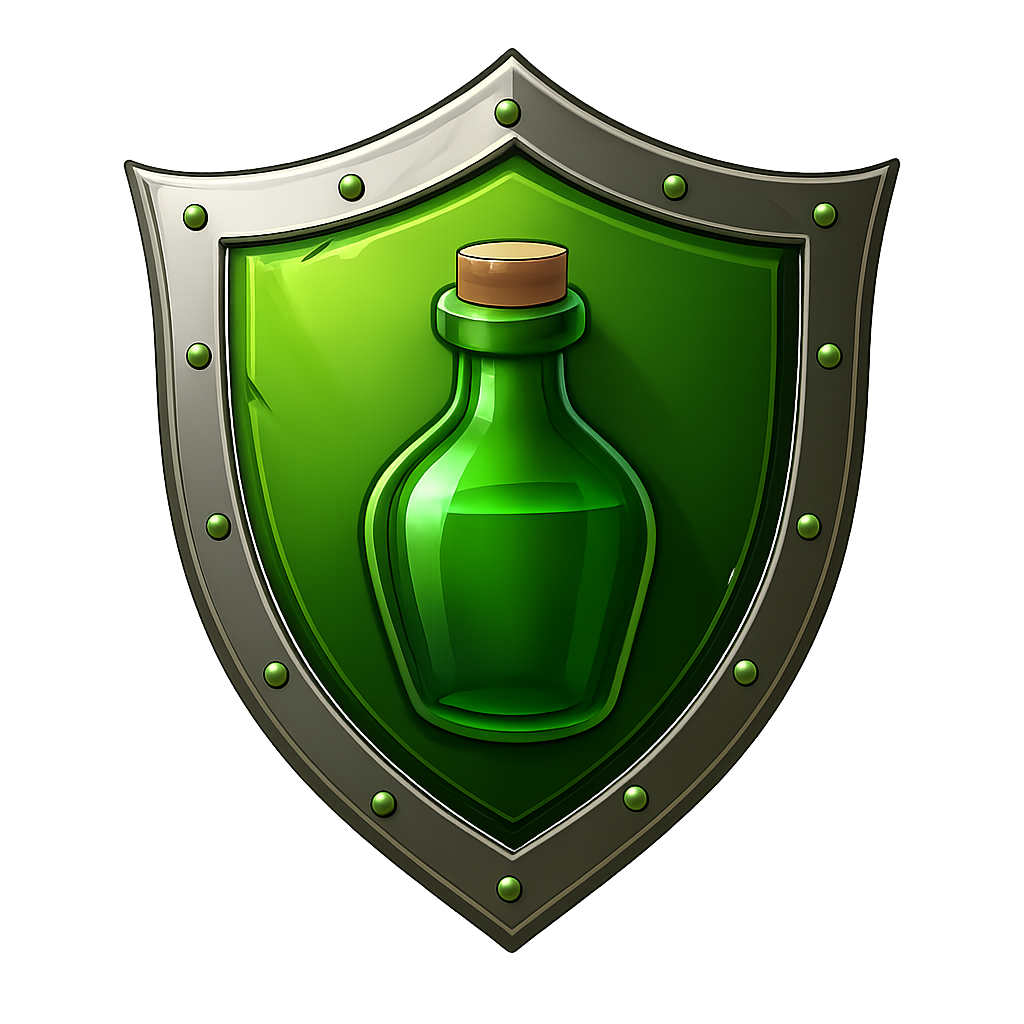Physical traits
The list below provides a detailed explanation of all the physical traits featured in the game.
ändra alla slag till samma som för skill traits

Progress
The result of the d20 roll when using any of the physical traits not only determines the success of the specific situation but also impacts your progress in developing certain traits. Specifically, the three traits that can progress are Initiative, Perception, Mental Resistance, and Magic Resistance. If you roll a natural one or twenty, you earn one star out of a possible five. Once you collect five stars, you can increase the level of that trait by one point.
The reasoning behind gaining a star on a roll of one or twenty is rooted in the idea that we often learn the most from either our failures or our successes.
It’s important to note that some physical traits cannot be upgraded, as they are purely physical in nature and do not involve any actionable skill or growth through experience. Only traits like Perception, Mental Resistance, and Magic Resistance allow for progress through this system.
Effect
As your results vary during play, you will inevitably fail on occasion. The impact of these failures depends on the nature of the penalty.
For initiative, it is a binary outcome—one person is always slightly quicker than the other. If you lose, you act last. Perception follows a similar pattern; you either notice the relevant detail or you don’t.
Mental and magical resistance work differently, as they involve saving throws against spells, scrolls, or similar effects. If you succeed, you either completely avoid the danger or mitigate it, often reducing its impact by half. The exact outcome is typically determined by the game master.


SPEED

HEARING

DARK VISION

STRENGTH

CONSTITUTION

PERCEPTION

MENTAL RESISTANCE

MAGIC RESISTANCE

FORTITUDE

TOLERANCE

SPEED
There are five types of speed: walking, running, swimming, riding, and flying. Your speed varies depending on whether you’re traveling or engaged in combat. If the speed is determined by a vehicle or mount, it is based on the capabilities of that specific object. Speed tables can be found under movement.
To the top


HEARING
Hearing is an innate trait of each race, with some races naturally excelling in this ability more than others. If the Game Master decides a dice roll is needed to determine whether a character hears a sound, the character’s hearing bonus is added to the roll.
The Game Master sets the difficulty level for the sound, and the player must roll at least that number, including their hearing bonus, to succeed. Sounds that are generally easy for most people to hear are left to the discretion of the Game Master to decide without requiring a roll.
You roll a d20; a 1 always fails, and a 20 always succeeds.
EXAMPLE: The sound is equivalent to a light wind, requiring a roll of at least 14 to hear it. Orac the Orc has a +1 bonus to hearing and rolls a 13. With the bonus, the total becomes 14, just enough to detect the faint sound.
To the top


DARK VISION
With darkvision, you can see clearly even in complete darkness. In areas of dim light, the range of your darkvision is doubled. Characters without darkvision can still see in dim light, but they may need to roll for Perception to notice details.
When you need to respond to visual threats, such as objects being thrown at you or liquids like acid approaching your eyes, refer to the table below.
The table below is designed for more severe threats. If the object is less dangerous—such as a banana instead of acid—reduce the damage accordingly or impose a temporary hindrance instead, like preventing the character from taking actions for a turn or impairing their movement due to momentary disorientation.
The progression is based on how easy it is to avoid the danger. The impact itself remains the same whether you fail to dodge something easy to spot or something that comes without warning. Treat the damage as you would for any other attack.
You roll a d20; a 1 always fails, and a 20 always succeeds.
EXAMPLE: As you navigate the narrow dungeon corridor and turn the corner, a war beast suddenly leaps at you. To notice the beast in time, you need to roll a 13 or higher, including your perception bonus. You roll a 5 and add 5 due to your Elf traits, totaling 10. Since this is below the required threshold, you fail to spot the beast immediately, and it is treated as a surprise attack. You cannot evade it and must rely on a saving throw for acrobatics or blocking.
To the top


STRENGTH
Strength can be utilized in three distinct ways: Powerlifting, Pulling and Backpacking.
Powerlifting represents a concentrated burst of strength focused on a single, intense effort, such as lifting or pushing a heavy object in one go.
Pulling involves sustained strength applied for a slightly longer duration than a powerlift, but still limited to a short-term effort.
Backpacking refers to the amount of weight a character can carry comfortably while traveling over extended periods.
A burst of strength isn’t limited to just powerlifting or pulling as specific activities; it should be adapted to fit each situation where it is most applicable.
Each use reflects a different aspect of the character’s physical capabilities.
| Race | Powerlifting Capacity | Pulling Capacity | Backpacking Capacity |
|---|---|---|---|
| Orc | 180 kg | 115 kg | 28 kg |
| Human | 150 kg | 100 kg | 25 kg |
| Dwarf | 170 kg | 110 kg | 27 kg |
| Elf | 130 kg | 90 kg | 23 kg |
To the top


CONSTITUTION
Constitution is a versatile attribute that influences both healing and survival. Healing is impacted by factors such as race and background, both of which shape the character’s overall resilience.
For healing, the attribute is tied to race, with some races having slower recovery times than others. In terms of survival, constitution determines how long a character can endure without sustenance. Detailed information about this can be found under the Resilience section.
Constitution is vital for resisting poison/venom, cold or heat as outlined in the list below. The severity of the venom’s effects depends on the size of the target the spell was designed for.
You roll a d20; a 1 always fails, and a 20 always succeeds.
EXAMPLE: As the poisonous gas reaches Gomlin the Dwarf, a former miner, he risks being poisoned and must roll for Constitution. With his mining background, he has a +4 bonus. He rolls a 12, bringing his total to 16. As a result, Gomlin resists the poison and only takes half damage.
To the top


PERCEPTION
Perception represents your awareness of your surroundings. When the Game Master (GM) wants to check if you notice an important event or occurrence, you will roll a die to see if you detect it. Perception also encompasses the ability to discern details in a conversation or pick up on subtle cues.
To determine your perception outcome, roll a d20 and add any bonuses from your race and background. These modifiers reflect your character’s unique abilities and experiences.
You roll a d20; a 1 always fails, and a 20 always succeeds.
EXAMPLE: Zyx Thundershadow is wandering through his cavern when he passes by a gem giving off a faint glint—something someone has lost. Will he notice it? As a former scribe and a goblin, he has a +2 bonus. He rolls a 12, and with the bonus, his total becomes 14. Since noticing a faint glint requires a roll of 12 or higher, he spots the gem and picks it up.
To the top


MENTAL RESISTANCE
When you detect an intrusive mental command, you can attempt to resist it. The required roll is based on the mana spent on the attack, minus bonuses from your race and background. Non-magical commands fall under the appropriate skill traits instead of being treated as a mental attack.
You roll a d20; a 1 always fails, and a 20 always succeeds.
To the top


MAGIC RESISTANCE
Magic resistance doesn’t protect against your psyche, like mental resistance, but rather your perception of magical illusions. The required score is determined by the amount of mana spent on the attack, reduced by your bonuses from race and background.
You roll a d20; a 1 always fails, and a 20 always succeeds.
To the top


FORTITUDE
Your Courage to Endure the Disgusting
Fortitude is your character’s inner grit – the willpower to push through revulsion, swallow slime, crunch down tentacles, or drink things that smell like rot and despair. It doesn’t measure whether it harms you, just whether you can stomach it without hesitation.
This trait is often used in social or ritual settings where refusing to eat or reacting visibly would offend hosts or break diplomacy.
You roll a d20; a 1 always fails and a 20 always succeeds.
| Experience | D20 | On Failure |
|---|---|---|
| Throat irritation, swallowing reflex | 17 | Coughing, delay, or loss of face. -1 to Charisma for 1d4 rounds. |
| Gag reflex, eye-watering, intense revulsion | 18 | Lose turn or impose Disadvantage on next social/ritual check. |
| Overwhelming disgust, near panic | 19 | You vomit, flinch, or refuse; -2 to Charisma, Disadvantage on all checks for 10 minutes. |
To the top


TOLERANCE
Your Body’s Resistance to Harmful Substances
Tolerance represents your body’s physical ability to endure bad effects from what you ingest – spoiled meat, tainted water, alchemical sludge, fermented goblin root, or even magical contamination.
You roll a d20; a 1 always fails and a 20 always succeeds.
Body Reactions to Dangerous Ingestion
| Substance Effect | D20 | On Failure |
|---|---|---|
| Mild toxin or alcohol hit | 17 | Disadvantage on movement or Dexterity checks for 1d4 rounds. |
| Internal shock, nausea, short poisoning | 18 | Take 1d6 damage and become Weakened or Disoriented. |
| Critical exposure – magical, chemical or advanced poison | 19 | Take 2d6 damage and suffer a Lingering Condition (e.g. Poisoned, Fever, Hallucination) for GM-chosen time. |
To the top



























